'So many in breast cancer trial are still here'
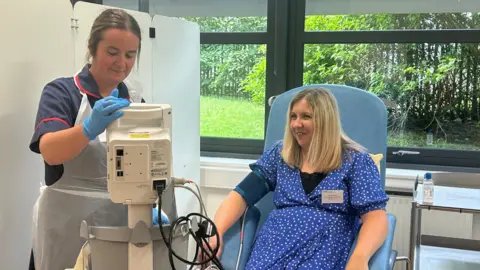 BBC
BBCA mother of two, who was given the all-clear from an aggressive type of cancer following a clinical trial, says she is determined to change the story for other women.
Both of Chantelle Ward's parents died of cancer. When she was diagnosed with triple negative breast cancer in 2017, she thought "it was game over, I was not going to be around for long".
Chantelle, 39, was offered a clinical trial at the Royal Cornwall Hospital two weeks after her diagnosis and was given the all-clear 18 months later.
She is now encouraging others to take part if offered a clinical trial, which she says are "saving so many lives", adding: "So many girls who were involved are still here to tell the story."
"It's amazing. If you don't try these trials, you don't know," Chantelle, who lives in Pool, Cornwall, said.
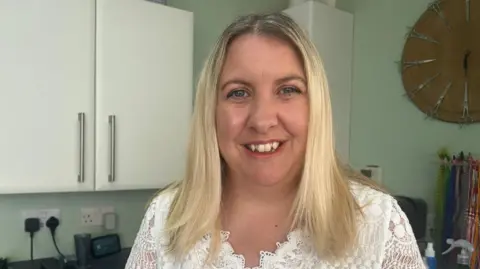
Ms Ward underwent a gruelling treatment plan involving chemotherapy, surgery, radiotherapy and immunotherapy.
"There were days when I was so poorly. I had a two-year-old at the time. It was really hard going, but the team pull you through."
The trial is called KEYNOTE 522 - Pembrolizumab for Early Triple-Negative Breast Cancer.
Clinical lead of the study, Caroline Goddard, recruited the patients.
"The patients had eight cycles of chemotherapy and immunotherapy before surgery. After surgery, they had radiotherapy and another nine cycles of immunotherapy," she said.
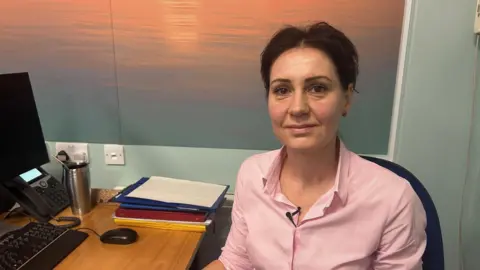
Oncology research doctor Madalina Chifu explained that immunotherapy exposes the cancer cells to the immune system and then your immune system tries to kill them.
As a result of research trials, the drug Pembrolizumab, known as Keytruda, has since been rolled out for use in normal practice.
Dr Chifu said the results were amazing: "I deliver the research, I see the results.
"I see people living their best life following their cancer diagnosis and it makes me feel like I am doing something really meaningful."
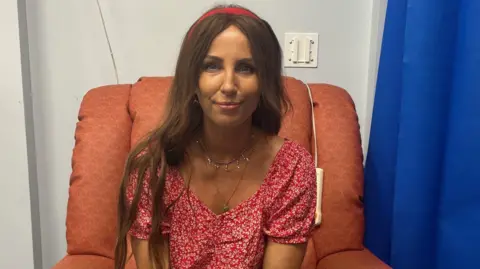
Jemma Sleeman, 46, from Newquay in Cornwall is also in remission from an aggressive form of breast cancer.
She is currently taking part in a new clincial trial called TRAK-ER, for women with oestrogen receptor-positive [ER+], HER2-negative breast cancer who have completed their initial treatment.
This is a trial that is being run in 20 centres in the UK and is led by The Royal Marsden and The Institute for Cancer Research.
It involves a smart blood test that can detect breast cancer returning early, before a recurrence can be seen on a CT scan.
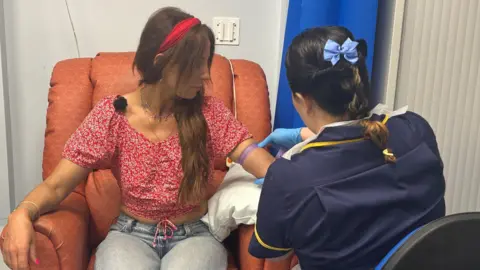
Ms Sleeman started the trial in 2024 and said it gave her a safety net.
"Every time I had bloods, I would find out whether the cancer had returned at a DNA level. I would rather know before it's even happened than find out when it's too late and I have already got symptoms."
The blood test has detected cancer DNA in her blood and she is being treated with the drug Palbociclib. She said she was lucky because she would never have known the cancer was returning if she had not been on the trial.
Dr Chifu is hoping these new blood tests will be offered as routine across the NHS in the future, leading to early diagnosis.
